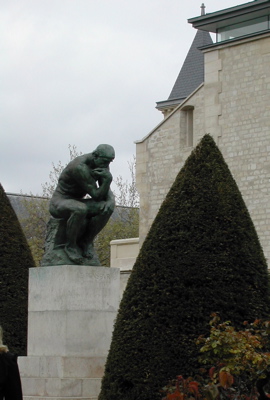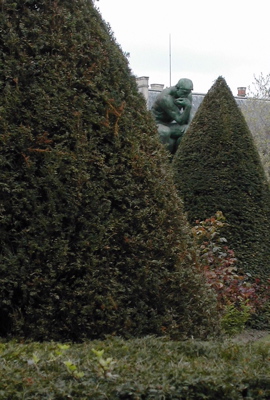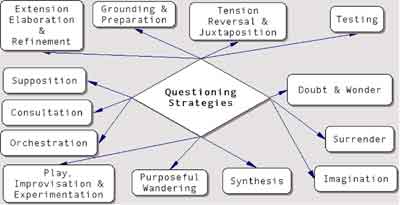Schools are expected to develop thinkers. But just what is a thinker?
And what must we do to grow more of them?
We have enough bricks in the wall. We have a surfeit of fools.
A healthy society needs thinkers to protect us from plastic thinking, from toxic planning and from disasters like the man made disaster following the natural disaster named Katrina.
A thinker asks good questions and figures things out with an independent spirit.
A thinker rarely cuts and pastes or makes simple copies, and never steals or plagiarizes.
He or she is not likely to surrender to the trend of the moment.
Who cares and why does it matter?
Those who occupy high positions in an unthinking manner put the rest of us at risk.
 |
Planning for the Worst
A thinker knows that a really bad flood would strand lots of old people in hospital and nursing home beds.
A thinker anticipates the worst that could happen and builds a plan to move the old people from their beds while they are still alive.
A non-thinker lets them drown in their beds and shrugs as if it were Fate.
A non-thinker blames others.
A thinker reads the disaster plan and orders the busses needed to help folks leave town.
A thinker saves lives.
|
 |
Planning for the Best
Not content to focus on disaster planning, a thinker looks at preventive measures and investments that might reduce the chance of disastrous events.
How can we build levees capable of standing up to the biggest of floods? What steps can be taken to manage the Mississippi River system to make terrible floods less likely? What regulations will minimize risk and environmental damage?
How can we prevent greed and business interests from increasing the flood hazards?
How can we bring opportunity and full employment to the seriously disadvantaged populations of our urban centers so they are not stranded or abandoned in difficult times?
|
 |
Persisting in Seeking Answers
A thinker sticks with the search regardless of how long it takes or how hard the search might prove.
A serial questioner possesses a number of remarkable characteristics, traits and propensities that may be nurtured by parents, teachers, schools and mentors of various kinds.
• Humility
• Relentless curiosity
• Indefatigable persistence
• Dogged determination
• Open-mindedness
• Tolerance of ambiguity
• Thirst for the missing
• Positive skepticism
• Sharpened humor
• Edgy wit
• Vivid imagination
• Cussedness
Read "The Serial Questioner"
|
 |
Employing Powerful Strategies
A thinker is skilled at employing the strategies described in the article accompanying this one in this month's issue. Click to learn more.

|
 The Question Mark
The Question Mark 



